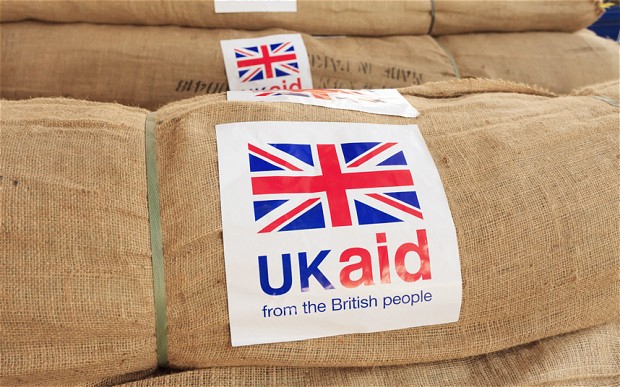
This article was last updated on April 16, 2022
Canada: ![]() Oye! Times readers Get FREE $30 to spend on Amazon, Walmart…
Oye! Times readers Get FREE $30 to spend on Amazon, Walmart…
USA: ![]() Oye! Times readers Get FREE $30 to spend on Amazon, Walmart…
Oye! Times readers Get FREE $30 to spend on Amazon, Walmart…
 An attempt by Tory Right-wingers to block proposed bill to enshrine in law a commitment to spend 0.7% of national income on overseas aid has been defeated during a vote in House of Commons.
An attempt by Tory Right-wingers to block proposed bill to enshrine in law a commitment to spend 0.7% of national income on overseas aid has been defeated during a vote in House of Commons.
It means that taxpayers will have to pay billions more in overseas aid after MPs backed a Private Member’s Bill tabled by Liberal Democrat ex-Cabinet minister Michael Moore to enshrine this commitment in law.
MPs voted by 146 to six to end debate on the report stage of the planned legislation, effectively allowing it to proceed to a third reading.
Prime Minister David Cameron has shown his support for the bill while indicating that actually meeting the target is more important than passing a law.
The vote was held by the critics of the bill, led by Tory MPs Philip Davies and Jacob Rees-Mogg, amid claims the U.K. will have to spend £1bn more than previously predicted.
According to figures released by the Office for Budget Responsibility (OBR), alongside Wednesday’s Autumn Statement, the gross national income of Britain is much higher than previous estimations.
It implies that the U.K.’s foreign aid bill will be ramped up if the country is to meet its commitment of providing the 0.7 per cent of Gross Domestic Product (GDP) aid to overseas organisations.
It has been reported that the recalculation of Britain’s national income means foreign aid spending is likely to be £400million higher this year and £550million in 2015/16.
The Department for International Development has stated: “We are confident that existing spending plans are consistent with our aid commitments.”
U.K. Independence Party leader Nigel Farage has also called for Britain’s overseas aid bill to be cut by up to 80 per cent to help pay off the country’s deficit.
Mr Farage has said during his phone-in interview on Friday’s morning: “Of the £11 billion a year that we spend on foreign aid, only £2 billion of it is spent on genuine humanitarian [things], you know, inoculation or clean water.
“So I’d cut £9 billion from that because frankly it’s just being used as an arm of foreign policy.”
However, Mr Cameron has insisted that supporting the vulnerable nations, such as Afghanistan, was in Britain’s best interests, while indicating such aid had already “significantly reduced” the number of threats to domestic security from those places.
Article viewed on Oye! Times at www.oyetimes.com.

Be the first to comment